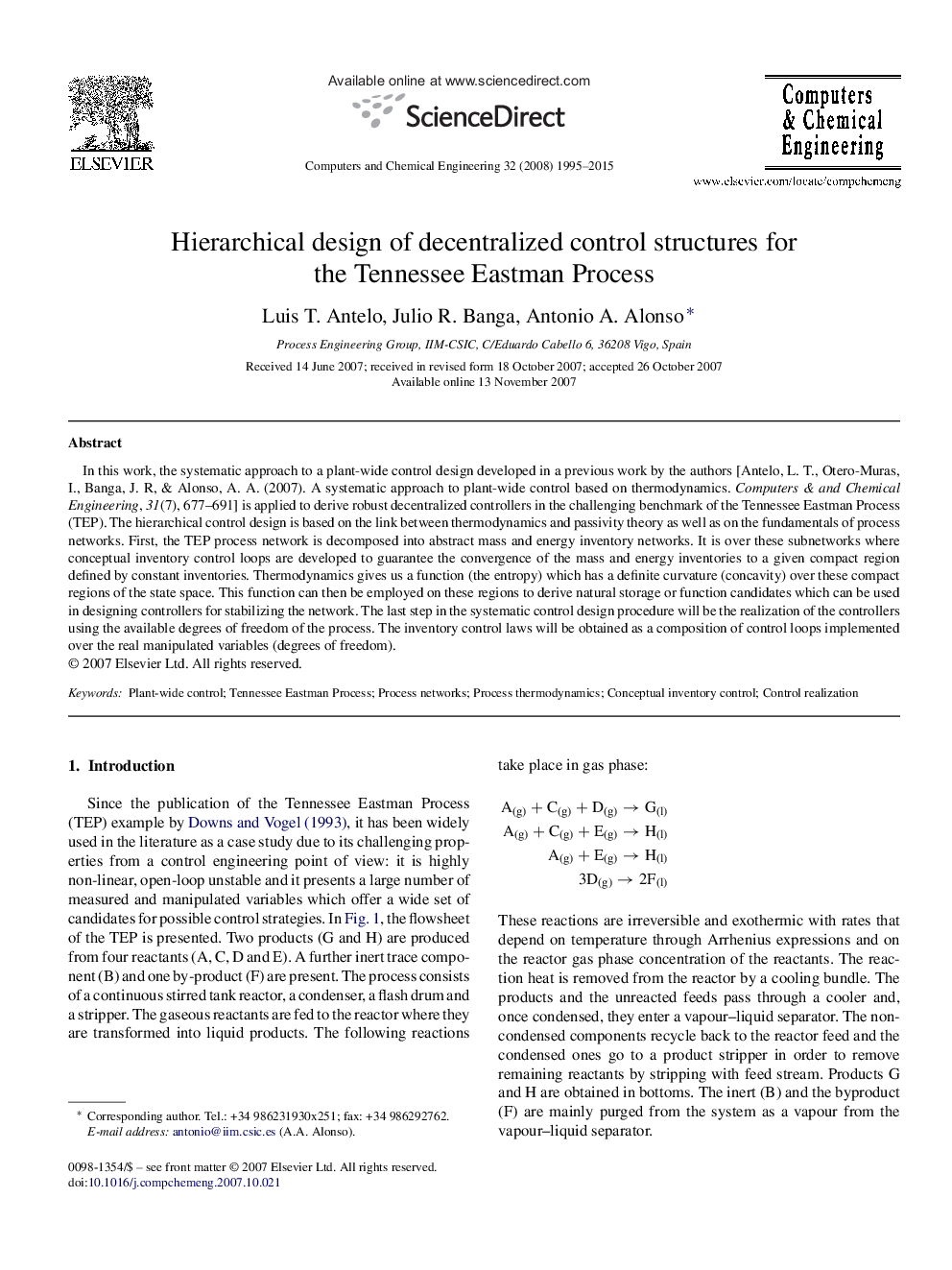| Article ID | Journal | Published Year | Pages | File Type |
|---|---|---|---|---|
| 173786 | Computers & Chemical Engineering | 2015 | 21 Pages |
In this work, the systematic approach to a plant-wide control design developed in a previous work by the authors [Antelo, L. T., Otero-Muras, I., Banga, J. R, & Alonso, A. A. (2007). A systematic approach to plant-wide control based on thermodynamics. Computers & and Chemical Engineering, 31(7), 677–691] is applied to derive robust decentralized controllers in the challenging benchmark of the Tennessee Eastman Process (TEP). The hierarchical control design is based on the link between thermodynamics and passivity theory as well as on the fundamentals of process networks. First, the TEP process network is decomposed into abstract mass and energy inventory networks. It is over these subnetworks where conceptual inventory control loops are developed to guarantee the convergence of the mass and energy inventories to a given compact region defined by constant inventories. Thermodynamics gives us a function (the entropy) which has a definite curvature (concavity) over these compact regions of the state space. This function can then be employed on these regions to derive natural storage or function candidates which can be used in designing controllers for stabilizing the network. The last step in the systematic control design procedure will be the realization of the controllers using the available degrees of freedom of the process. The inventory control laws will be obtained as a composition of control loops implemented over the real manipulated variables (degrees of freedom).
